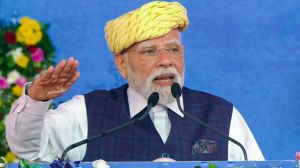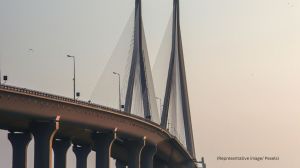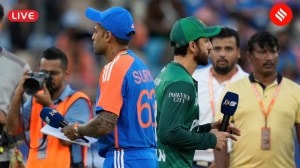Lessons of December 6, 1992
``I trusted them.'' Former Prime Minister P.V. Narasimha Rao after the Babri Masjid was demolished on December 6, 1992. Those three simpl...

“I trusted them.” Former Prime Minister P.V. Narasimha Rao after the Babri Masjid was demolished on December 6, 1992. Those three simple words, uttered in seeming anguish by the Prime Minister of the world’s largest democracy, in the aftermath of a stunning crime, one which ranks second only to the anti-Sikh pogrom of 1984, have acquired a whole new meaning now that the accused in the demolition, the Sangh parivar, is in power at the Centre.
This year marks the first time that the BJP is in power both at the Centre and in Uttar Pradesh when the Babri Masjid demolition anniversary has come along. And by this coincidence, a whole new debate has opened up. On whether a party can be trusted with the responsibility of providing people security, ensuring equality among religions in the country and whether a party in power will go along with the Supreme Court’s ruling on the contentious issue when the decision comes.
This acquires a fresh angle in the backdrop of the recent attacks against minorities,including Christians, in several states led by the Gujarat campaign by the VHP and the Bajrang Dal, fraternal organisations of the BJP. A general recount of the events leading up to the demolition in light of developments since the last eight months in the country thus becomes central to the issue.
The whole thing began brewing in the early part of 1992, June to be precise, when the call for a kar seva at Ayodhya was first given by the VHP. That announcement led to immediate tension in the union Cabinet with the then number two, Arjun Singh, piling on pressure on Narasimha Rao to act. Rao turned to his friend, former additional Solicitor-General Devendra Dwivedi, among others, for help.
One late June evening, Dwivedi held a crucial meeting with L.K. Advani at his house and followed it up with a meeting with Murli Manohar Joshi the next morning. The broad agreement thrashed out was that negotiations on Ayodhya must continue, the BJP must cooperate with the Centre and ensure there would be no law and orderproblem.
Following this, Rao met Joshi and Advani and called Atal Behari Vajpayee on phone. The result: peaceful kar seva at Ayodhya in June and an end to the tension. However, this was a mirage. For months, the tortuous process of talks began involving the RSS, mainly the current Sangh head Rajendra Singh, the top BJP troika of Advani, Joshi and Vajpayee, Rao, the then union home minister S.B. Chavan, former Cabinet Secretary Naresh Chandra and senior Muslim and Hindu leaders.
The general impression, and this is important in the context of Prime Minister Atal Behari Vajpayee calling for a day of introspection and reconciliation on December 6, was that the December kar seva would also pass off peacefully. Among the many stalwarts who believed this, apart from the much-maligned Rao, were Indrajit Gupta, Chandra Shekhar and Somnath Chatterjee.
Another crucial aspect was that the Supreme Court, which was actually monitoring the day-to-day Ayodhya developments, went by Kalyan Singh’s affidavit assuring thatthe `disputed structure’ wouldn’t be harmed. The then Chief Justice Venkatachaliah permitted the kar seva which was to unleash widespread havoc and added that the announcement of a “peaceful” kar seva be made on Doordarshan and AIR.
This monumental decision came in the backdrop of tension between the Centre and the Supreme Court and the then Attorney General Milon Banerjee in fact said so in court. He told the Bench the Centre was “not sure” of the outcome of the kar seva but he was overruled. The court told Banerjee that “enough precautions had been taken and were being taken” to ensure peaceful kar seva. In response, Rao sent central forces to UP and Kalyan Singh stationed them a kilometre away from Babri Masjid.
On December 3, RSS leader Rajendra Singh met Rao with an extraordinary request. He asked Rao to at least ensure that the Allahabad High Court decision on the acquisition of land be expedited before December 6. We will then have a way out, Singh is understood to have told Rao. Taken aback,Rao wondered how as the Prime Minister, he could ask a High Court judge to give a judgment on a set date. The first seeds of suspicion were sown.
Singh’s request should have given the game away. For, if the RSS was going in for a peaceful kar seva, there was no need to look for an alibi. Still, Rao believed the RSS and the BJP, or so he told the nation later. By the afternoon of December 6, frenzied kar sevaks had demolished the Babri Masjid in front of senior RSS, BJP, VHP and Bajrang Dal leaders. Nothing was to be the same again between Hindus and Muslims.
Today, six years later, Vajpayee, as PM, has spoken of reconciliation. The Congress, Left and the Rashtriya Loktantrik Morcha don’t believe him. Reconciliation must come from the BJP, these parties feel, citing the attacks on Christians of late. Yesterday, Christians all over the country protested. If there must be no more protests, the BJP must lead the way tomorrow. An apology for the Babri demolition can in no way be any lesser to the demands for aCongress apology for the anti-Sikh riots.
Photos



- 01
- 02
- 03
- 04
- 05




























